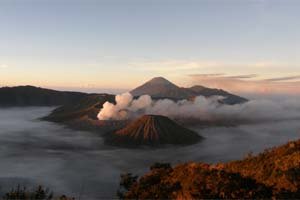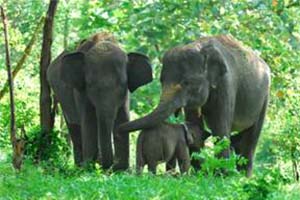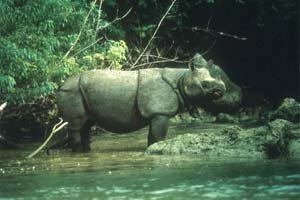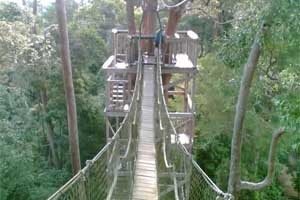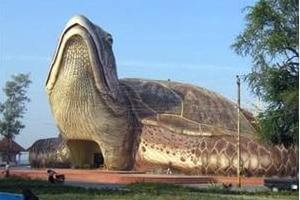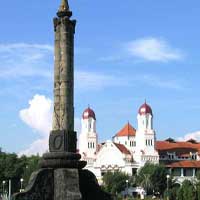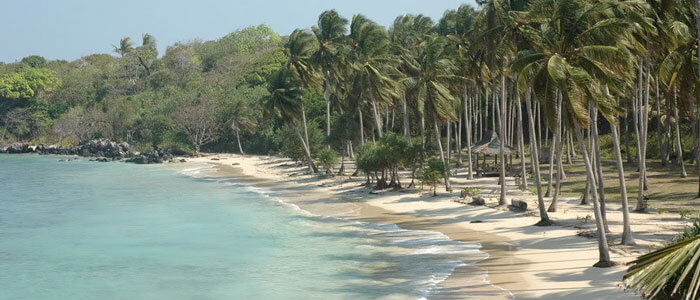
- National Park / Semarang
- -5.8455455, 110.4537964
- Open in Google Maps
Karimunjawa National Park, or also written as Karimun Jawa National Park is a Marine National Park in the Karimunjawa archipelago about 120 north of Semarang, Central Java. It is one of the six Marine Parks in Indonesia.
The park has an area of 110.117 ha, most of it water. The archipelago has 27 islands of which only 4 islands (Karimunjawa island, Kemujan island, Menjangan Besar island, and Menjangan Kecil island) are inhabited. On these islands a total of only about 10,000 people live permanently, most of them fishermen.
According to legend Karimunjawa was originally settled by Sunan Nyamplungan (born as Amir Hasan), the son of Sunan Muria, one of the Muslim Saints (Sunan) who introduced the Islam religion to Java.
The Karimunjawa National Marine Park has five types of ecosystems: mangrove forest, seagrass and seaweed, coastal forest, tropical rainforest and coral reef. Its biodiversity is tremendous: there are 44 species of mangrove floras, 11 species of sea grass, 9 species of sea weed, 444 species of fish, and 176 species of coral. For a long time Karimunjawa has attracted many botanists and researchers due to its unique flora and fauna. During the Dutch colonial period the archipelago was visited by famous botanists such as Teijsmann (in 1854), Koorders (1886), Schlechter (1910) and Dammerman (1926).
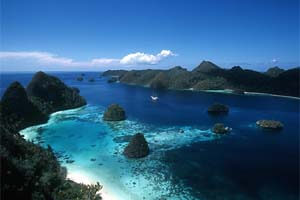
Tourism is only marginally developed and probably because the Park is in remote location a few tourists go here, which is a shame cause the clear pristine waters with amazing underwater live, white sandy beaches and uninhabited islands covered by rain forests are a treat.
Unfortunately waste disposal is mostly done by throwing it in the sea, so be prepared to encounter plastic bags as you swim and find shoes and lightbulbs on the white sand beaches.
Transport options Karimunjawa National Park
You have three options to go to Karimunjawa. First is the fast boat from Tanjung Emas port in Semarang (4 hours), the slow boat from Kartini harbour in Jepara (6 hours), or the fast boat from Jepara (2 hours). Be aware that all ferries are operated only twice weekly.



